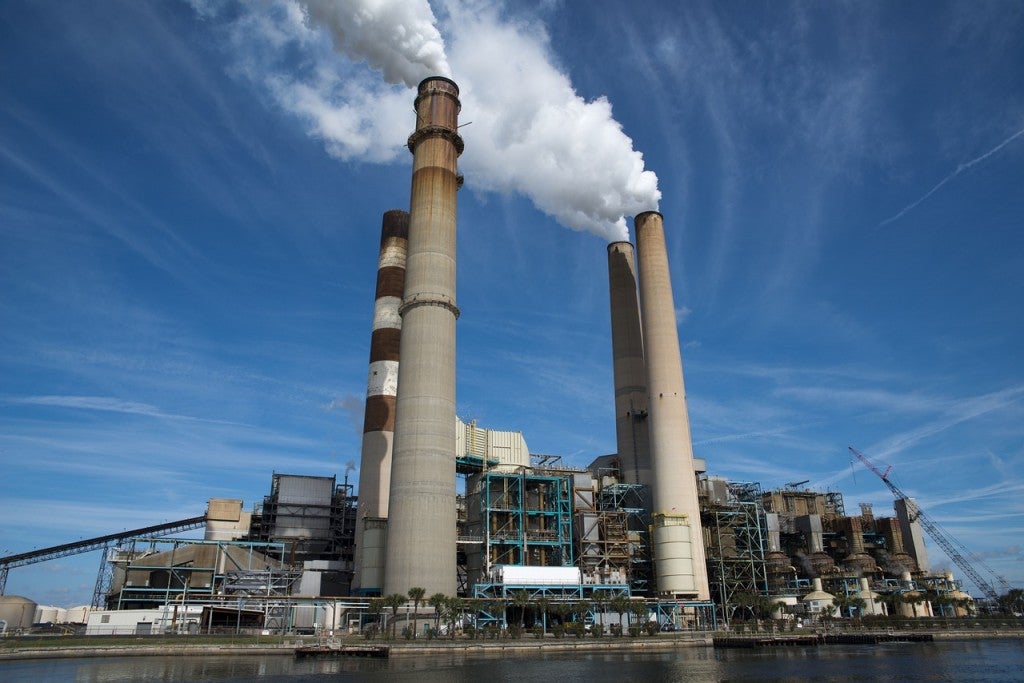We Need the Mercury and Air Toxics Standards in Place to Continue to Provide Their Life-Saving Protections
 Last week, EDF went to court to help make sure that the Mercury and Air Toxics Standards can continue protecting American families and communities.
Last week, EDF went to court to help make sure that the Mercury and Air Toxics Standards can continue protecting American families and communities.
EDF joined a broad group of state and local governments, public health and medical associations including the American Lung Association and the American Academy of Pediatrics, and environmental groups – who all jointly filed a motion asking the D.C. Circuit Court to leave the life-saving protections in place while the U.S. Environmental Protection Agency (EPA) responds to a recent Supreme Court decision.
The Mercury and Air Toxics Standards set the first-ever national limits on hazardous air pollution from their largest source – fossil fuel-fired power plants. The protections cover pollutants including mercury, arsenic, chromium, and hydrochloric acid gas. These pollutants are dangerous to human health even in small doses — mercury causes brain damage in children, metal toxics like chromium and nickel cause cancer, and acid gases cause respiratory problems.
But in June, the Supreme Court held that EPA should have considered costs in its threshold assessment whether it is “necessary and appropriate” to move forward with the regulation of these toxics – EPA had considered costs in establishing the resulting emissions standards. The Supreme Court did not overturn the Mercury and Air Toxics Standards, it provided for EPA to take corrective action.
Right now, the Mercury and Air Toxics Standards — which would save an estimated 11,000 lives each year — remain in effect and continue to deliver clean air protections for our nation.
However, opponents of the Mercury and Air Toxics Standards are asking the D.C. Circuit Court to halt the implementation of these safeguards while EPA responds to the High Court’s decision. EDF and our allies will be fighting in court to prevent that from happening.
The current battle in the D.C. Circuit is critically important because halting the Mercury and Air Toxics Standards would result in the release of the most hazardous air pollutants from power plant smokestacks.
Some of the nation’s preeminent public health scientists are on our side in this battle. They also filed statements with the D.C. Circuit Court supporting the continued implementation of the Mercury and Air Toxics Standards and highlighting what’s at stake for our communities and families including protecting infants from neurotoxic exposures to methylmercury:
Methylmercury can pass the placenta, and the developing brain is particularly vulnerable to such effects. If methylmercury toxicity occurs during fetal or early postnatal development, the damage is much more severe and more widespread than in adults, and the effects are likely to be permanent. . . . some portion of the increased mercury levels resulting from vacatur would persist in environmental reservoirs, available for uptake by fish and eventual consumption by people, for decades.” (Philipe Grandjean, pages 6 and 14)
Vacating the Mercury and Air Toxics Standards would lead to more hazardous air pollution with serious public health consequences and is utterly unwarranted given the fact that EPA previously found that the public health benefits of the standards were valued at up to $90 billion annually and far exceeded the compliance costs.
Furthermore, due to technological improvements and other factors, power companies have been able to comply with the Mercury and Air Toxics Standards at less than one-quarter of the cost originally estimated by EPA. Indeed, a group of power companies submitted their own motion to keep the Mercury and Air Toxics Standards in place. See the declaration of James E. Staudt on page 5.
In other words, once EPA goes back and considers costs as the Supreme Court directed (which it plans to do by April 2016), the record before the Agency will be manifest that the public health benefits of the Mercury and Air Toxics Standards exceed the costs by an even greater margin.
More briefs are expected to be filed with the D.C. Circuit over the next two months on whether to vacate the Air Toxics Rule or keep it in place. EDF and our allies will continue to urge the court to keep these life-saving protections, for the health and safety of all Americans.












